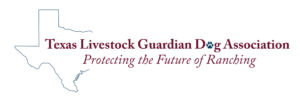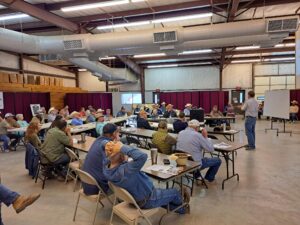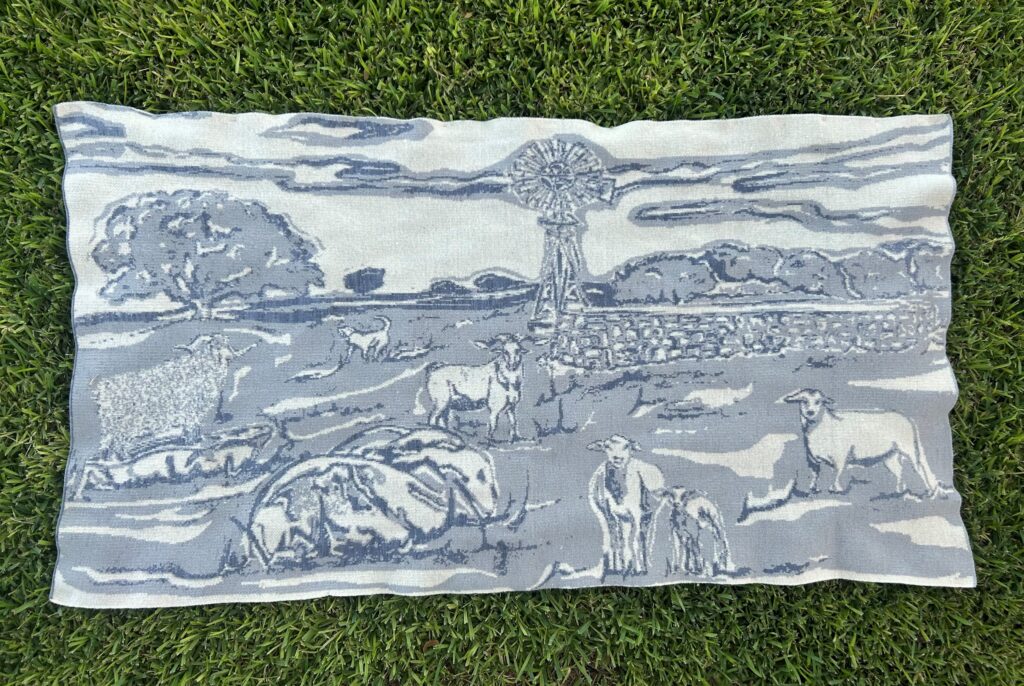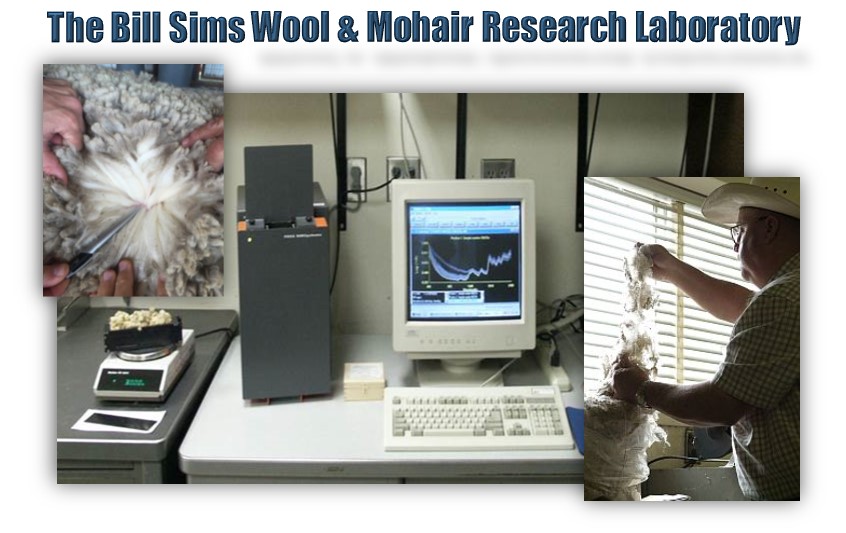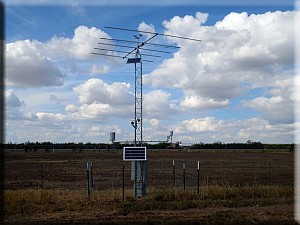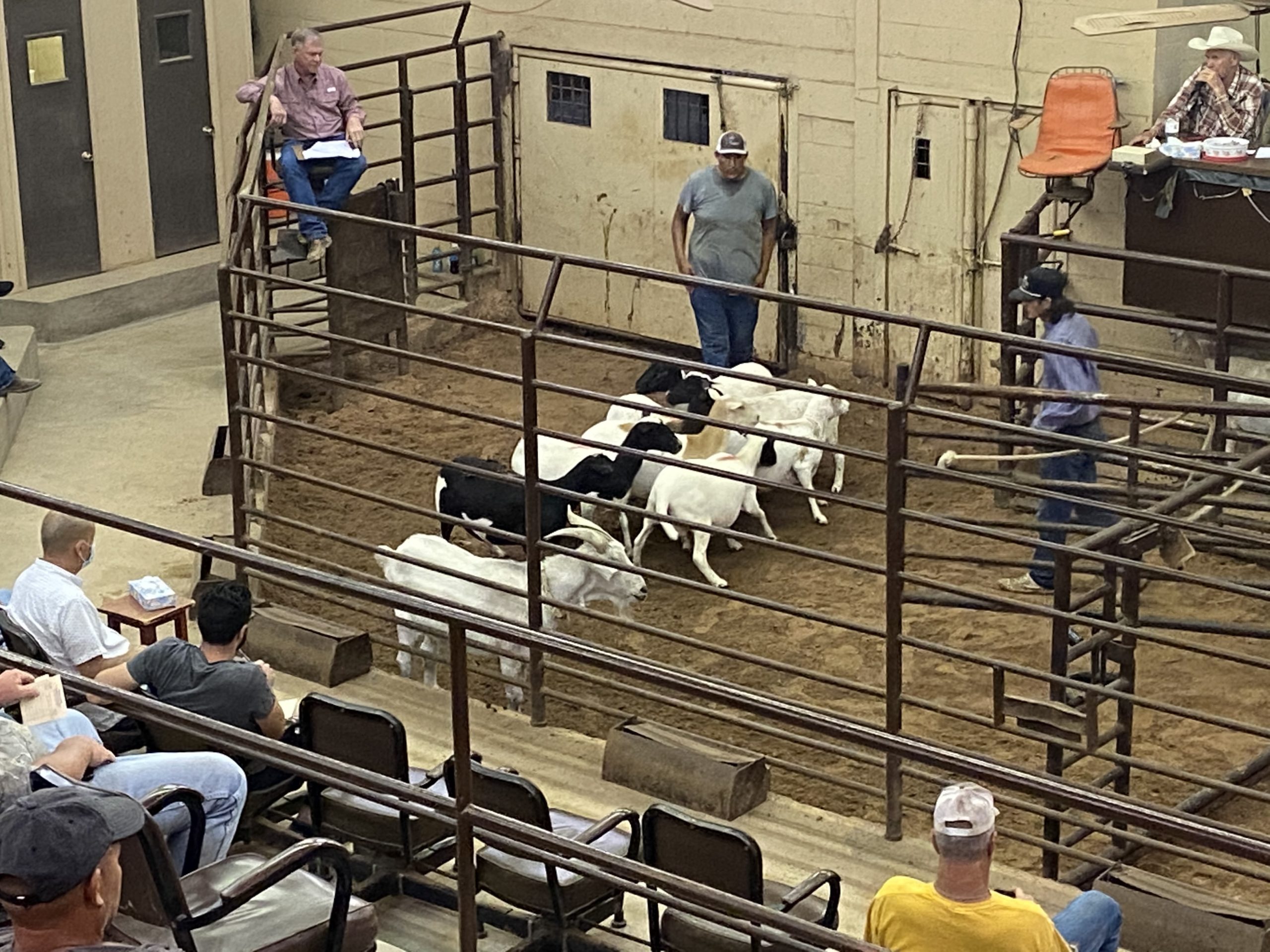We had a great Spring LGD Field Day in Sonora on April 14 at the AgriLife Sonora Research Station. Over 50 people attended the event. Excellent information was provided by all the speakers at the event. Like all our LGD field days, there was a lot of interest, questions, and comments from the crowd. We would like to thank Bo McClelland, the Sutton County Trapper, and Mark Taylor, the hunting lease manager for the Sonora Station, for taking time out of their busy schedules to provide participants with information on using LGDs with trapping methods and how to have more effective hunts while using LGDs. If you missed the event, we will be holding another field day this fall or check out the Texas LGD Association field day on June 10 in Caldwell, Texas. Let us know if you would like to have a field day in your area.
We would like to thank the following generous sponsors of the event in Sonora.
Gold Sponsors
Capital Farm Credit Diamond Pet Food Lone Star Tracking
Main Street Realty – Hudson Properties Nestle Purina
Texas Sheep and Goat Predator Board
Silver Sponsors
Invisible Brand Fence Tom Green County Farm Bureau Insurance
Tractor Supply – San Angelo WW Livestock Guard Dogs
AgriLife Livestock Guardian Dog Program: Events and Update
Our next online seminar will be held May 18 at 3 p.m. on Zoom. Check out our Facebook page for more information as the event gets closer. The topic will be “The Great Pyrenees Breed” presented by Carrie Parks, chair of the Judges Education Committee at the Great Pyrenees Club of America (GPCA). Carrie is also an AKC judge, on the board of directors of the GPCA and has had Great Pyrenees, both working and show, since 1959. The online seminar will be free as always. You can sign up on our events page.
The Texas LGD Association will be hosting its first annual LGD Field Day in Caldwell at the Burleson County Fairgrounds on June 10. Check out their Facebook Page for more information on the event and how to register. The event will consist of workshops, a breeder panel, and an association meeting. Vendors and LGD breeders will be on site as well.
LGD FAQ’s
We will start a three-part article this month on frequently asked questions that producers submit when they contact our program about LGDs.
- What is the most important thing about an LGD that people should understand before
purchasing a dog?
A: LGDs have a natural responsibility for guarding and defending their charges– whether it’s a herd of livestock or a territory. LGDs are strong-willed, very independent, and are typically not very obedient. They are intelligent dogs and are good at problem solving. Most LGDs are large and powerful dogs that will protect their charges at all costs, even with their own lives.
- How are LGDs different from other (non-LGD) breeds?
A: LGD have a unique temperament. They do not display predatory behaviors that many other breeds of dogs do. They were developed over thousands of years not to have prey drive instincts. An LGD must be able to make decisions on their own. This requires the dog to be extremely intelligent, but also very independent.
- What LGD breed should I pick?
A: Which breed you choose really depends on your ranch size and location. LGDs come in different sizes and colors to blend in with the livestock they were designed to guard. Some are better suited as perimeter guardians, while others are better at staying close to the herd to guard. Some breeds have long hair while others have short hair coats. There are more differences between individual dogs than across breeds.
- If raised with livestock from a puppy can any breed of dog make a trustworthy LGD?
A: Generally, no. LGD breeds have been bred for thousands of years to have a particular set of traits that predispose them to be good at the specific task of protecting the livestock they live with without much human direction. When non-LGD breeds are crossed with LGDs, you are reintroducing prey drive instincts into a dog that had those traits removed over thousands of years. You may end up with a dog who will not stay with the livestock and prefers human contact. Or you may end up with a livestock killer due to the combination of LGD size with herding or hunting dog instincts.
- Do you need to have good fencing for LGDs?
A: Yes, all LGD breeds require secure fencing to safely contain the dog. LGDs may expand their territory and roam if not properly bonded as a pup. This can be a risk to the health and safety of the dog, as well as a liability should the dog hurt anyone. Good fencing is a requirement for using LGDs and keeping them on your ranch, especially during their puppy and adolescent stage of life. Invisible fencing and/or hot wire in the bonding pen can be a good option to teach your dog boundaries to help prevent roaming as an adult.
- Do LGDs make good pets and are they safe for my grandkids to be around?
A: Some LGDs can be a good family pet. However, they may be very protective of your home and family which may cause problems when visitors come to your home. LGDs are generally not aggressive towards humans if properly socialized as a puppy. Socialization is very important to keep LGDs catchable in the field.
Bonding Project Update
The pups in round five of the bonding project are doing well. They have been released from the 60 ft x 60 ft pens into the 1-acre pens. They
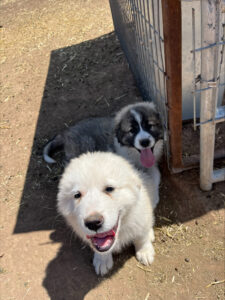
Maverick and Goose (white pup) taking a break in the shade. (Texas A&M AgriLife photo courtesy Costanzo 2023)
were also rotated to a new set of livestock so that they bond to species and not specific animals. One of Komondor pups (Mable) and one of the Great Pyrenees cross pups (Viper) have been chewing on lamb’s ears and legs, both of which are single bonded pups. Generally chewing behavior starts with dogs that are three to five months of age. We have not seen this issue at such an early age in the past rounds because the dogs were not exposed to young livestock while still in the bonding pens. We are taking a proactive response and removing young lambs/kids and their mothers from the pens. They are being replaced with larger older animals that will not tolerate the puppies chewing on them and teach the pups to be submissive.
In closing
If you enjoyed this monthly LGD blog, please don’t forget to subscribe to it with this link The Guardian Way | Texas A&M AgriLife Research and Extension Center at San Angelo.
To provide feedback on this article or request topics for future articles, please contact me at bill.costanzo@ag.tamu.edu or 325-657-7311.
The Texas A&M AgriLife Livestock Guardian Dog Program is a cooperative effort by Texas A&M AgriLife Research and the Texas Sheep and Goat Predator Management Board. Make sure to follow us on our social media sites and share them with your friends and family!
Facebook: https://www.facebook.com/TAMUlivestockguarddog/
Instagram: @tamulivestockguarddog
YouTube: https://www.youtube.com/channel/UCF7YbP6bNDV7___6H8mifBA
Don’t forget to check out the Texas LGD Association on online! Follow the organization at https://www.facebook.com/TexasLGDAssociation or check out their website!